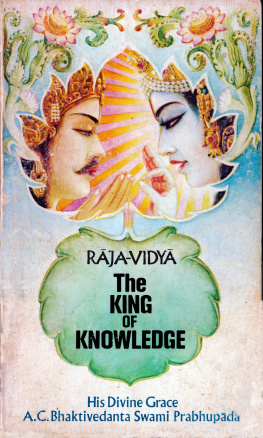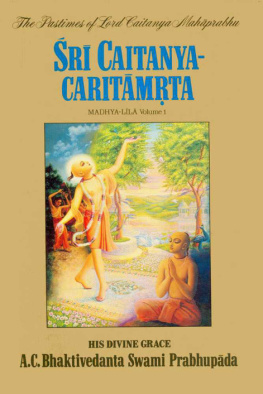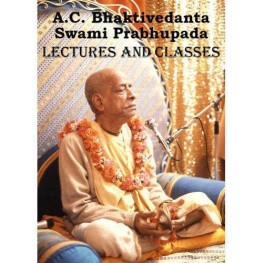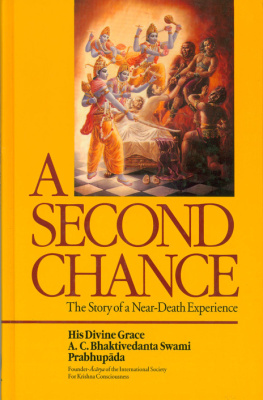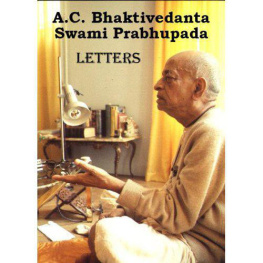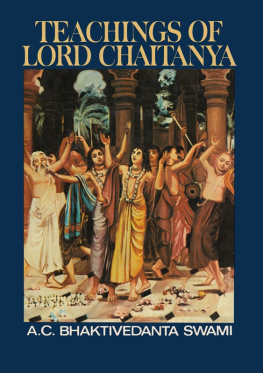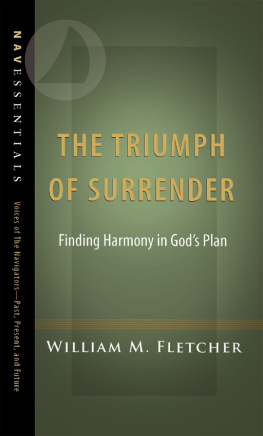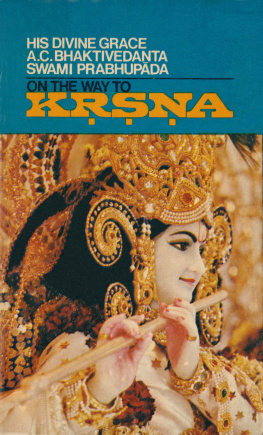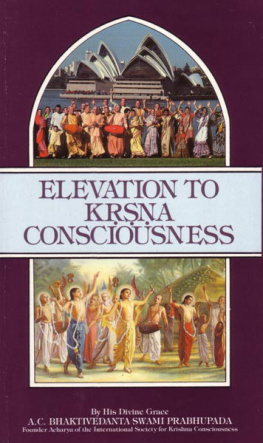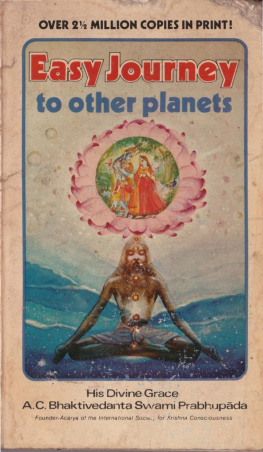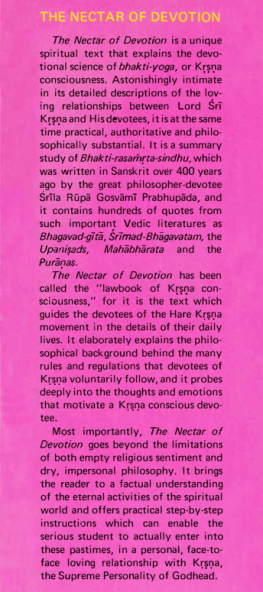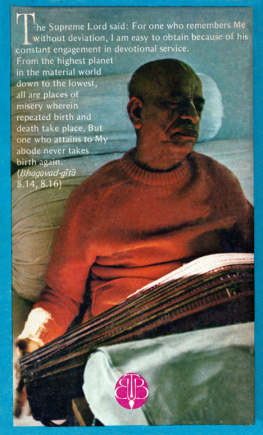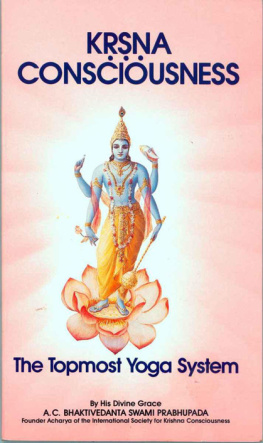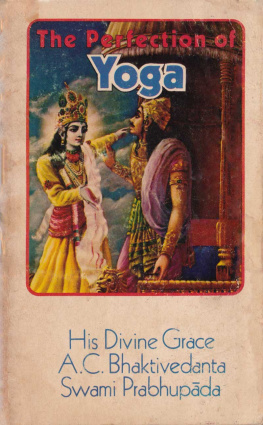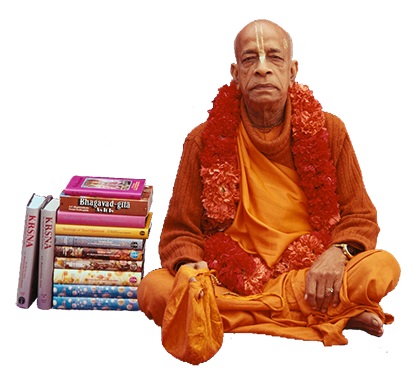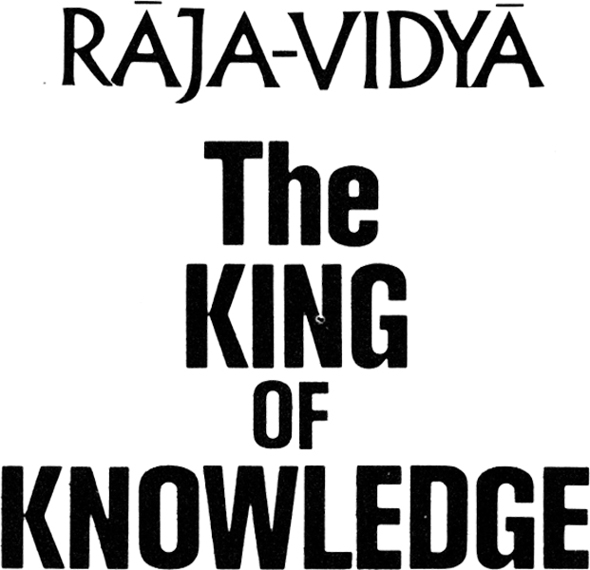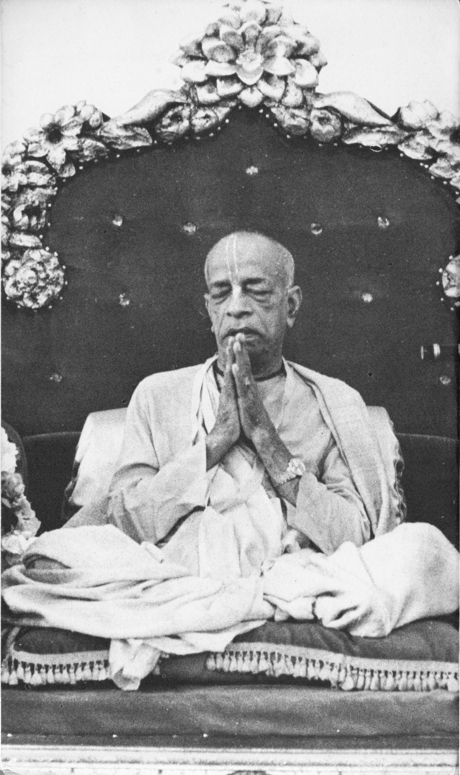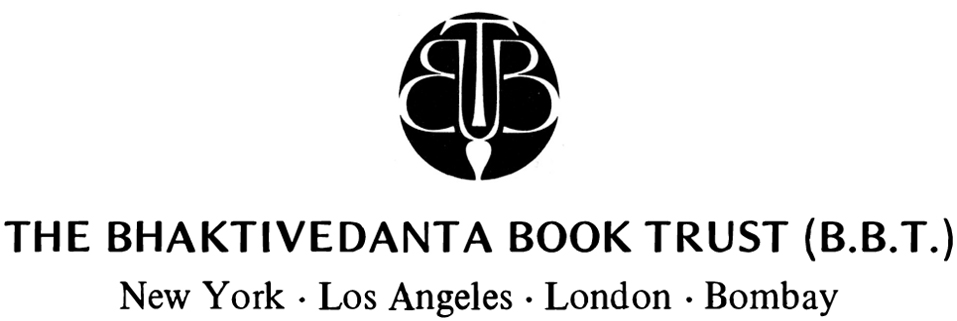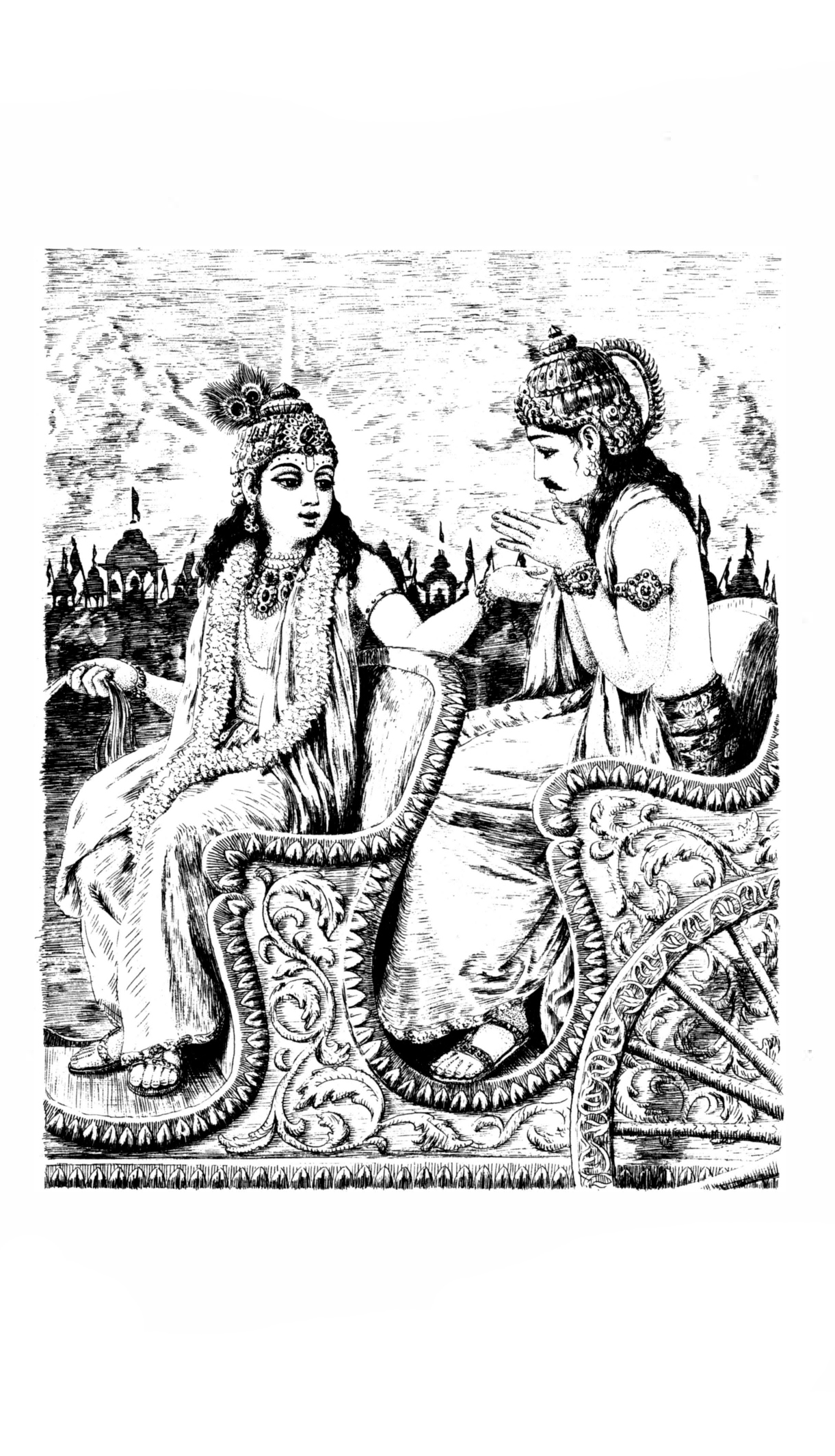This free for download ebook is a direct reproduction of the original bona fide personally approved and blessed by Srila Prabhupada.
This ebook was made by the official website for Srila Prabhupadas original books:
Krishnapath.org
All the content was directly taken from the original scans, is unchanged and intact.
Readers interested in the subject matter
of this book are invited by
the International Society for Krishna Consciousness
to correspond with its Secretary.
International Society for Krishna Consciousness
3959 Landmark Street
Culver City, California 90230
1973 by the Bhaktivedanta Book Trust ( B.B.T.)
All rights reserved
First Printing, 1973: 100,000 copies
Second Printing, 1973: 160,000 copies
Library of Congress Catalog Card Number: 72-84845
International Standard Book Number: 0-912776-40-4
Printed in the United States of America by Donnelley Printing Co.
1. Raja-Vidya:
The King of Knowledge
1
Rja-Vidy:
The King of Knowledge
r bhagavn uvca
ida tu te guhyatama
pravakymy anasyave
jna vijna-sahita
yaj jtv mokyase 'ubht
"The Supreme Lord said: My dear Arjuna, because you are never envious of Me, I shall impart to you this most secret wisdom, knowing which you shall be relieved of the miseries of material existence." (Bg. 9.1)
The opening words of the Ninth Chapter of Bhagavad-gt indicate that the Supreme Godhead is speaking. Here r Ka is referred to as Bhagavn. Bhaga means opulences, and vn means one who possesses. We have some conception of God, but in the Vedic literature there are definite descriptions and definitions of what is meant by God, and what is meant is described in one wordBhagavn. Bhagavn possesses all opulences, the totality of knowledge, wealth, power, beauty, fame and renunciation. When we find someone who possesses these opulences in full, we are to know that he is God. There are many rich, wise, famous, beautiful and powerful men, but no one man can claim to possess all of these opulences. Only Ka claims to possess them in totality.
bhoktra yaja-tapas
sarva-loka-mahevaram
suhda sarva-bhtn
jtv m ntim cchati
"The sages, knowing Me as the ultimate purpose of all sacrifices and austerities, the Supreme Lord of all planets and demigods and the benefactor and well-wisher of all living entities, attain peace from the pangs of material miseries." (Bg. 5.29)
Here Ka proclaims that He is the enjoyer of all activities and the proprietor of all planets (sarva-loka-mahevaram). An individual may possess a large tract of land, and he may be proud of his ownership, but Ka claims to possess all planetary systems. Ka also claims to be the friend of all living entities (suhda sarva-bhtnm). When a person understands that God is the proprietor of everything, the friend of everyone and the enjoyer of all, he becomes very peaceful. This is the actual peace formula. No one can have peace as long as he thinks, "I am the proprietor." Who is capable of claiming proprietorship? Only a few hundred years ago the red Indians were considered to be the proprietors of America. Today we in our turn are claiming that proprietorship, but in four hundred or a thousand years perhaps someone else will come to claim the same. The land is here, and we come here and falsely claim ourselves to be proprietors of it. This philosophy of false proprietorship is not in line with Vedic injunctions. r opaniad states that "everything animate or inanimate that is within the universe is controlled and owned by the Lord (vsyam ida sarva mantra 1)." The truth of this statement is factual, but under illusion we are thinking that we are the proprietors. In actuality God owns everything, and therefore He is called the richest.
Of course there are many men who claim to be God. In India, for instance, at any time, one has no difficulty in finding at least one dozen people claiming to be God. But if you ask them if they are the proprietor of everything, they find this difficult to answer. This is a criterion by which we can understand who God is. God is the proprietor of everything, and, being so, He must be more powerful than anyone or anything else. When Ka was personally present on this earth, no one could conquer Him. There is no record of His ever having lost a battle. He belonged to a katriya (warrior) family, and the katriyas are meant to give protection to the weak. As far as His opulence is concerned, He married 16,108 wives. Every wife had her own separate palace, and Ka expanded Himself 16,108 times in order to enjoy them all. This may seem difficult to believe, but it is stated in rmad-Bhgavatam, and the great sages of India recognize this as scripture and recognize Ka as God.
In the first verse of this Ninth Chapter, by the word guhyatamam, r Ka intimates that He is imparting the most confidential knowledge to Arjuna. Why is He proclaiming this to Arjuna? It is because Arjuna is anasyunon-envious. In the material world if someone is greater than us, we are envious. We are not only envious of one another, but of God. Also when Ka says, "I am the proprietor," we disbelieve it. But this is not the case with Arjuna, who listens to Ka without envy. Arjuna does not cavil with Ka but agrees with whatever He says. This is his special qualification, and this is the way of understanding Bhagavad-gt. It is not possible to understand what God is by our own mental speculations; we have to hear, and we have to accept.
Because Arjuna is not envious, Ka speaks this special knowledge to him. This is not only theoretical knowledge but practical knowledge (vijna-sahitam). Whatever knowledge we receive from Bhagavad-gt should not be taken for sentimentality or fanaticism. The knowledge is both jna and vijna, theoretical wisdom and scientific knowledge. If one becomes well-versed in this knowledge, liberation is certain. Life in this material world is by nature inauspicious and miserable. Moka means liberation, and the promise is that by dint of understanding this knowledge one will attain liberation from all miseries. It is important then to understand what Ka says about this knowledge.
rja-vidy rja-guhya
pavitram idam uttamam
pratyakvagama dharmya
susukha kartum avyayam
"This knowledge is the king of education, the most secret of all secrets. It is the purest knowledge, and because it gives direct perception of the self by realization, it is the perfection of religion. It is everlasting, and it is joyfully performed." (Bg. 9.2)

